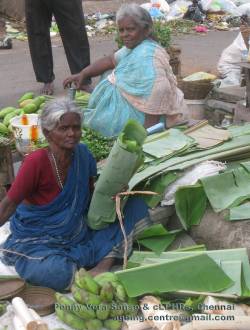 A national photo competition on the “Working Elderly” in India, which reveals the widespread and diverse nature of older people’s work has had over 900 pictures uploaded and over 9,000 votes in just a week.
A national photo competition on the “Working Elderly” in India, which reveals the widespread and diverse nature of older people’s work has had over 900 pictures uploaded and over 9,000 votes in just a week.
It was inspired by our photo exhibition and essay “We too contribute” which told the story of research into the older urban poor, which I undertook in collaboration with The Centre for Law, Policy and Human Rights Studies (CLPHRS) since 2007 and has been shown in Chennai, London, Dublin and New Delhi. The latter was done at the request of the Pension Parishad, a network of organisations campaigning for a universal pension in India.
We faced a dilemma. The exhibition proved successful at raising awareness of older people’s work, yet we couldn’t cover the scale and scope of their work across a country as big as India. We were in danger of the research’s significance being pigeon-holed in the “what-happens-in-big-cities” box.
Online record of older people’s work
The dream was a permanent online record of older people’s work from India’s mountains, plains, deserts, coasts, villages, towns and cities – an irrefutable documentation of what older people do and how they fit into the local and national economy.
This would provide no hiding place for so many stereotypical concepts – “old age dependency”, “old age burden”, “working age” (as limited 15-59 years) and the insignificance of older people’s work.
This evidence would require people to rethink how they discuss and draw up policy on old age, particularly in contexts of deep poverty and increasing economic insecurity. Contexts in which older people must work to contribute to family incomes and, as they often say, to support their grandchildren’s education.
A people’s research project
We are very fortunate that The Hindu newspaper, one of India’s largest English language newspapers, agreed to hold the photo competition with us. And it is becoming a people’s research project!
We now have photos of older people working from all over India, a country with the second largest population of people over 60, in which over 90% of the population receive no pension whatsoever.
And those who do receive a social pension receive a meagre Rs200 per month (just over US$3.3 at today’s rate), which a very few local governments have topped up to the value of US$16.5 per month. Without a pension, or a viable pension, as well as the pressure on family incomes, older people have to work until the end of their lives, as the competition demonstrates.
Older people take pride in their work
However, this isn’t the only story. Our research reveals that people take pride in the contributions they make to their families; especially to their grandchildren’s education. They also like the independence that earning an income can bring – “I don’t have to ask anybody for every single rupee I need”.
Yet as the photo competition clearly shows, many people are barely making a living and are taking on work that appears much too onerous. Three men strapped to each other bent double carrying a loaded oil barrel is especially poignant. Others, by contrast, sit in the shade cutting, selling, making and some may be able to time their work with cooler periods of the day.
Clearly the critical issue here is who is in the driving seat? What would enhance older people’s capacity to determine whether and how much they work and what they do?
The competition reveals how widespread older people’s work is, how important it is for themselves, their families and their country.
How to take part
Please participate in the competition by voting, spreading the word and, if you can, entering pictures taken in the last 12 months in India.
Read more about how older people contribute to the economy.
Find out more about my work at Birkbeck, University of London.
